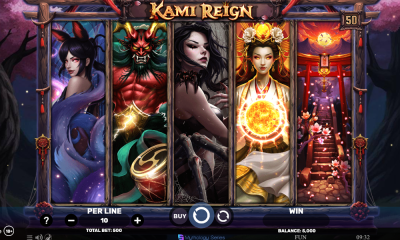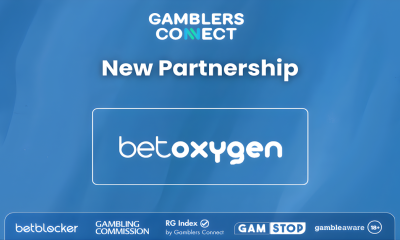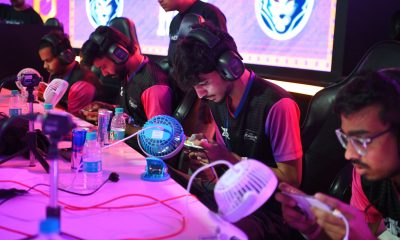BOS
BOS welcomes proposal to expand criminalization of unlicensed gambling companies

Reading Time: < 1 minute
BOS – the Swedish Trade Association for Online Gambling – comments on the inquiry into the so-called scope of application of the Gambling Act that was submitted to the Ministry of Finance today. The inquiry proposes that passive acceptance of Swedish gambling consumers shall be illegal for gambling companies that do not hold a Swedish gambling license. Gambling companies without a Swedish gambling license must therefore take active measures to exclude Swedish gambling consumers.
BOS welcomes the proposal and has been working towards such a change in the law ever since the reregulation of the Swedish gambling market in 2019.
“This is an important contribution to the possibility of strengthening the Swedish gambling license market, which is now proposed to criminalize almost all unlicensed gambling in Sweden. I foresee the government shortly submitting a bill to the Riksdag in accordance with the investigation’s proposal. Good job Mr. Investigator and with the hope of equally good job from the government and the Riksdag to now proceed with legislation on the matter. Unlicensed gambling in Sweden must be smoked out,” says BOS Secretary General Gustaf Hoffstedt.
The post BOS welcomes proposal to expand criminalization of unlicensed gambling companies appeared first on European Gaming Industry News.
ATG
BOS Rejects ATG Call for Differential Tax: “It Constitutes Illegal State Aid”

Editor’s Take
Why this matters: The unity of the Swedish regulated market is fracturing. While the industry usually stands together against black market threats, ATG (the former state monopolist) has broken ranks by advocating for higher taxes on its competitors (casinos) while seeking a tax cut for its own core product (horse betting). BOS’s response is significant because it elevates the argument from “bad policy” to “illegal act.” By invoking EU State Aid rules, BOS is signaling that any government attempt to favor ATG will face immediate litigation in Brussels.
The Full Story
The conflict between Sweden’s commercial operators and the former horse racing monopoly ATG has escalated into a debate over European Union law.
Following a controversial op-ed by ATG CEO Hasse Lord Skarplöth in Dagens Industri (DI) on December 19, the Swedish Trade Association for Online Gambling (BOS) has issued a sharp rebuttal. BOS Secretary General Gustaf Hoffstedt argues that ATG’s proposal—to raise the general gambling tax to 26% while lowering the tax on horse betting to 18%—would likely be deemed illegal under EU state aid rules.
The ATG Proposal In his initial column, Skarplöth argued that the Swedish government should abandon a flat tax rate. He proposed increasing the tax burden on online casinos and sports betting to 26%, while simultaneously requesting a tax reduction for horse betting products to 18%. ATG argues this differentiation better reflects reality and protects the funding of the Swedish equine industry.
BOS: “A Legal Dispute with the EU” In a response published in Dagens Industri on December 22, Gustaf Hoffstedt rejected the proposal on two fronts: commercial viability and legal compliance.
While BOS has long argued that raising taxes will destroy channelisation rates (driving players to the unlicensed market), Hoffstedt’s newest argument focuses on competition law. He asserts that because ATG holds a de facto monopoly on horse betting, a tax break specifically for that vertical is a direct subsidy to a single company.
“In addition to weakening the competitiveness of the legal licensing system… a system with a differentiated gambling tax would place Sweden in a legal dispute with the EU. We should avoid that,” said Hoffstedt.
The Monopoly Argument Hoffstedt points out that while the Swedish Gambling Act technically allows other operators to apply for horse betting licenses, the reality is different. ATG retains exclusive access to pool data and direct connections to trotting and galloping tracks. Furthermore, ATG had 45 years of monopoly protection to build liquidity in its pools, creating a network effect that competitors cannot realistically challenge.
Therefore, BOS argues, a tax cut for “horse betting” is, in practice, a tax cut exclusively for ATG.
“If a benefit can in practice only be used by a single company, it is selective in the sense of state aid law,” Hoffstedt explained. “Against this background, a differentiated gambling tax for horse racing would mean that the state, through the tax system, provides an economic advantage that can in reality only accrue to a single company.”
Debunking the UK Comparison Skarplöth previously cited the United Kingdom as an example of a jurisdiction with successful differential taxation. Hoffstedt dismissed this comparison as “misleading.” In the UK, the market for horse betting is competitive, with multiple operators offering bets on equal terms. In Sweden, the structural advantages held by ATG make such competition impossible.
The Ultimatum: Open the Pools or Keep Taxes Flat BOS concluded with a challenge to ATG and the government. If ATG wants a unique tax bracket, it must surrender its unique market position.
“The uncomfortable but necessary conclusion for ATG is therefore clear. You cannot both maintain the current special status for horse racing and at the same time introduce a differentiated gambling tax,” Hoffstedt wrote.
He outlined that for a differential tax to be legal, ATG would need to open its betting pools to other companies at neutral compensation levels. If ATG wishes to keep its pools closed, “taxation must continue to be the same for all gambling products.”
The post BOS Rejects ATG Call for Differential Tax: “It Constitutes Illegal State Aid” appeared first on Gaming and Gambling Industry Newsroom.
ATG
BOS in debate with Svenska Spel and ATG on SvD Debatt on bonuses in the gambling market

Reading Time: 4 minutes
On November 7, the CEOs of the gambling companies Svenska Spel and ATG published an op-ed in one of Sweden’s main newspapers – Svenska Dagbladet – in which they propose a total ban on all bonuses in the Swedish licensed gambling market.
BOS – the Swedish Trade Association for Online Gambling – responds today in the same paper that such a ban would unilaterally benefit Svenska Spel and ATG commercially, at the cost of poorer consumer protection in Sweden. The latter is related to the fact that a total bonus ban is expected to contribute to an accelerated transition from legally licensed gambling to unregulated unlicensed gambling.
“The elephant in the room for consumer protection is that consumers are to such a large extent absent from the legally licensed part of the gambling market. Instead, they have chosen the unregulated unlicensed market to an alarming extent, partly because of the very generous bonus systems offered there. We should not have that kind of excesses with sky-high bonuses in the licensed market, but to completely ban any form of moderate bonus offer is to give up the fight of defending the licensed gambling market and its consumer protection,” says BOS Secretary General Gustaf Hoffstedt.
Svenska Spel’s and ATG’s debate article is available here: https://www.svd.se/a/nyky6B/bonusar-maste-bort-driver-pa-ungas-spelande-skriver-debattorer
BOS’ debate article is available here, signed by Gustaf Hoffstedt, published today, November 14: https://www.svd.se/a/GyvAK4/spelbolagschefer-driver-spelarna-till-olagliga-spel-skriver-gustaf-hoffstedt
A translated version of Gustaf Hoffstedt’s op-ed can be read below:
Svenska Spel and ATG sacrifice consumer protection
Tighten the conditions for licensed gambling companies even further, demand gambling company CEOs Anna Johnson and Hasse Lord Skarplöth, Svenska Spel and ATG respectively, on SvD Debatt. Today, all forms of programs for loyal gambling customers are already prohibited in the Gaming Act. Johnson and Lord Skarplöth want this ban to now be extended to the currently permitted bonuses for new gambling customers. All in the name of protecting the gambling consumer.
Their reasoning may seem logical to someone who is not more deeply familiar with the conditions in the gambling market. What the reasoning, however, completely ignores is the elephant in the room when it comes to consumer protection in the Swedish gambling market: that consumers are increasingly abandoning licensed gambling companies in favour of companies that operate outside the regulated gambling market. According to a recent study by ATG, one of the signatories of the op-ed, the share of unlicensed online casino gambling can now account for just over 40 percent of turnover. In the unlicensed gambling market, the absence of consumer protection is total. The Swedish state receives zero kronor in gambling tax there and zero kronor in profit from its own state-owned gambling operations.
In the name of good consumer protection, the 40 percent lost to the unlicensed gambling market outweighs the 60 percent who still play licensed. This is because most high-volume gamblers are found among the 40 percent. High-volume gamblers are not synonymous with problem gamblers, but it is among these 40 percent that Swedish consumer protection needs to reach. Which it does not do today.
We believe that everyone agrees and is concerned that gambling among young people under the age of 18 is a growing problem, but to claim that this is due to the welcome bonuses that are currently offered to adult players, without mentioning how today’s young people learn to play for money through so-called skins and loot boxes in their favourite games, is not serious. Especially since data from our neighbouring country Denmark clearly points to the latter as the main reason for the increase in youth problem gambling there.
A high proportion of legally licensed gambling is achieved through striking a balance between consumer protection and gambling pleasure. The gambling consumers must themselves want to be in the licensed gambling market. If this is not achieved, the entire system will collapse.
The gambling authority Spelinspektionen has asked gambling consumers why they prefer to play unlicensed in Sweden to such a large extent. Among the main explanations is always the absence of loyalty programs for existing customers. Now Johnson and Lord Skarplöth also want to remove the possibility of giving a bonus to a new gambling customer. If they get their way, we probably haven’t seen the bottom yet in how low the proportion of legally licensed gambling can fall. As a reference, the Netherlands can be mentioned, whose gambling authority KSA recently announced that the proportion of illegal gambling now accounts for more than half of their gambling market.
So why are Svenska Spel and ATG acting in this way? Well, because even in a shrinking legal gambling market, there are market shares to defend. Both of these gambling companies, which emerged from the Swedish gambling monopoly, took significant market shares with them from the start when the Swedish gambling market was reregulated in 2019. The fact that their competitors, who in many cases start with zero customers on their data base, are prohibited from offering a bonus when a new customer is recruited is of course tempting for the old monopolists.
But they bite their own tail. Because with demands for further restrictions on the legal licensed gambling market, they can only defend their market share in an increasingly shrinking license market.
This is sad to see, because the Swedish gems ATG and Svenska Spel, where in the latter case all Swedes are part-owners of the company, could instead have shown leadership in defending a sustainable gambling license market. These two companies could have brought together the gambling market, or at least the members of their own trade association, for some common good. However, they ignore this and run solo games for short-term benefit for themselves, but not for Sweden and above all not for consumer protection in the gambling market.
Gustaf Hoffstedt, Secretary General, BOS – The Swedish Trade Association for Online Gambling
The post BOS in debate with Svenska Spel and ATG on SvD Debatt on bonuses in the gambling market appeared first on European Gaming Industry News.
BOS
BOS presents comparative study between gambling regulations in Sweden and Denmark

Reading Time: 2 minutes
The Swedish Trade Association for Online Gambling – today presents a comparative study between how the gambling markets are regulated in Sweden and Denmark. The report has been carried out by the independent law firm Nordic Legal. In addition to the comparative study, 19 recommendations are made to the Swedish government and the Swedish Gambling Authority (SGA).
The report authors have found that Denmark’s gambling regulations is more successful in meeting its country’s gambling policy goals, in that Denmark over time has had a higher and more stable channelisation, but that Denmark’s position also seems to be under threat recently.
The report states that Sweden is unlikely to reach its 90 percent target in terms of channelisation unless a larger reform takes place, and the recommendations presented in the report can be used to increase the channelling rates.
The report also states that channelisation is important and should not be neglected as a marker for a well-functioning gambling market, something that has been proposed by policymakers in Sweden and elsewhere as a response to the difficulty to reach previously decided high ambition channelisation goals.
The report authors believe that no repressive measures will alone solve the channelisation problem, neither implemented nor future, as long as the licensed gambling market is not allowed to offer a sufficiently attractive gambling offer. Repressive action can include measures such as ISP blocking and payment blocking. Attractive gambling offers may, for example, include a somewhat less rigid bonus and loyalty regulation in Sweden.
The report also points to different government and authority cultures in Sweden and Denmark. According to interviews of licensees in the report, Sweden’s gambling authority is characterized by a punitive culture and a culture of fear, while Denmark is stated to be dialogue-oriented in the relationship between authority and licensees. The escalation ladder of measures in Denmark when licensees violate rules is mentioned as one positive characteristic. This should be compared with Sweden, which is stated to instantly apply the harshest possible sanctions.
“We hope that the report will be a useful tool and encourage Sweden to find inspiration in several of the measures and approaches that have been so successfully implemented in Denmark. Some of them are strictly rule based, such as how loyalty programs are regulated. Some are more difficult to approach and of a cultural nature, but just as important, and are connected to the policymaker’s attitude to the industry it is supervising”, says Gustaf Hoffstedt, Secretary General of BOS.
“Hopefully, this report can inspire policymakers in Sweden to choose the path of regulation that strengthens the licensed gambling market and as a consequence strengthen consumer protection, as neighbouring Denmark has successfully proven is possible,” Gustaf Hoffstedt concludes.
The post BOS presents comparative study between gambling regulations in Sweden and Denmark appeared first on European Gaming Industry News.
-

 iGaming News 20263 days ago
iGaming News 20263 days agoSpinomenal Rings in 2026 with Japanese-Inspired “Kami Reign Ultra Mode”
-

 Hold and3 days ago
Hold and3 days agoPragmatic Play Rings in 2026 with Joker’s Jewels Hold & Spin™
-

 Five Elements Slot3 days ago
Five Elements Slot3 days agoPG Soft Concludes 2025 with High-Volatility Launch: Mythical Guardians
-

 Latest News3 days ago
Latest News3 days agoFrom ‘Mummyverse’ to Crash Games: Belatra Reviews a Landmark 2025
-

 Bespoke Gaming Studio3 days ago
Bespoke Gaming Studio3 days agoCreedRoomz and Casumo Forge Strategic Partnership to Elevate Live Casino Experience
-

 B2B gaming software3 days ago
B2B gaming software3 days agoGamblers Connect and BetOxygen Announce Strategic B2B Partnership
-

 Akshat Rathee2 days ago
Akshat Rathee2 days agoIndian Esports 2026: Strategic Growth and the Asian Games Milestone
-

 Aztec Slot2 days ago
Aztec Slot2 days agoEvoplay Unveils Sunstone Riches: An Aztec Adventure Powered by the Sun



























